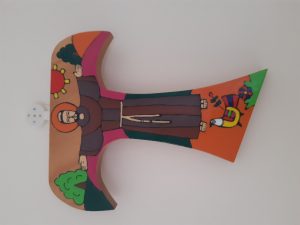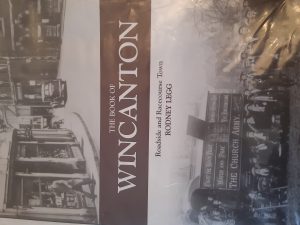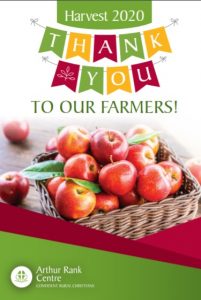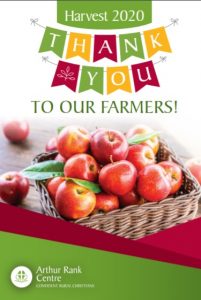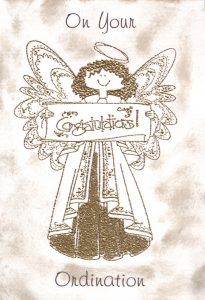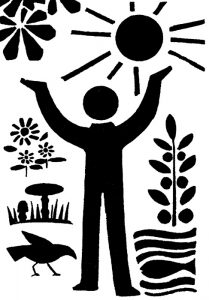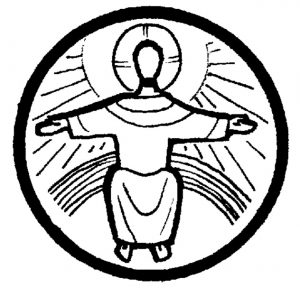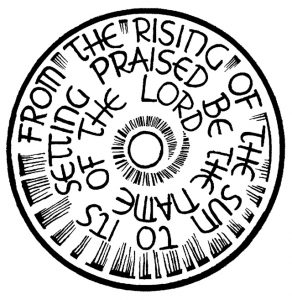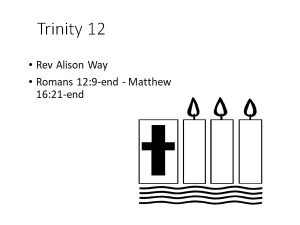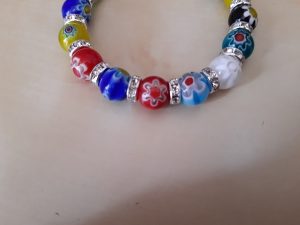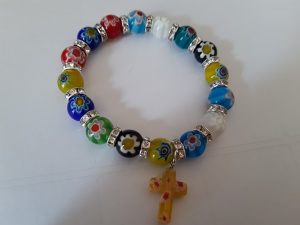St Luke’s day – 2 Timothy 4: 5-17 and Luke 10: 1-9
All shall be well and all shall be well and all manner of things shall be well’
Many of you would be able to tell me that that is a quote from the writings of Dame Julian of Norwich. Julian lived between the years of 1343 and approximately 1416. During her lifetime the city suffered the devastating effects of the Black Death; the Peasants’ Revolt, and the suppression of the Lollards. When she was about thirty she was so seriously ill she thought she was on her deathbed and was given the last rites, but amazingly she recovered and lived for at least another 30 years. Although she lived in a cell attached to St Julian’s church, she would have been aware of all the happenings around her as she was not cut off from society – her cell had 3 windows which enabled her to take part in worship of the church and to communicate with the world outside and with her servant, and despite all these dreadful things happening she was able to write the beautiful words with which I started. She lived through a pandemic just as we are today, but with none of the advantages that we have of medical skill and knowledge or of numerous methods of communication.
You are probably wondering why I am talking about a fairly obscure English mystic when the theme of our service is St Luke, but on St Luke’s day it is customary to think about healing and wholeness. We know very little about St Luke personally, but we have a lot to thank him for. Without his writings we would have very little to decorate our Christmas cards and nativity scenes, as almost the entire Christmas story is told only in his gospel. Without Luke there would be no annunciation, no journey to Bethlehem, no fully booked inn, no manger no angels and shepherds. We would also know nothing of the boyhood of Christ, and our evensongs would have no Magnificat or Nunc Dimittis. In chapter 1 Luke tells us that he set himself the task of finding out and writing an orderly account and his story is possibly the best account of the life of Christ that we have.
We know Luke through his writings, and if you include the Acts of the Apostles, he wrote about 25% of our New Testament. Possibly the only non-Jew to be included in the New Testament. The best known parables – the prodigal son, the good Samaritan and the lost sheep were also brought to us by Luke. Our only account of the growth of the early church was written by him. As Paul mentions in his letters, Luke accompanied him on much of his travelling. The narrative in Acts sometimes changes to the first person as Luke almost forgets his role as a reporter rather than a participant. He knew the importance of good record keeping.
What we remember Luke for chiefly today is his profession – he was a physician and is patron saint of doctors and surgeons. Since we are aware that Paul was not always in good health, it is likely that Luke chose to travel with him in order to care for him and enable his ministry to continue. We know from our first reading today that he remained with Paul during his house arrest in Rome while he awaited his trial before Nero, in the certain knowledge that it would lead to his death. We have no knowledge of what happened to Luke after this – he had told the story he set out to tell.
We learned through the news during lockdown earlier this year that nurses, doctors and carers were working far beyond their allotted shift hours to provide the best for those in their care – in the case of staff at care homes even to the extent of leaving their families to fend for themselves as the carer lived in at their place of work so as to be always on hand. We also know that the medical profession is generally not highly paid, the hours are antisocial, and that this year they were under resourced to the extent that going to work meant putting their lives on the line. We applaud the courage of firefighters, the police and the armed forces – we never thought it would take courage to be a nurse or carer.
We have also been in danger in the recent past of almost canonising them. My contact with medical professionals in my family has brought something very much to the fore – they are not saints and angels – and have no desire to be treated as such. They are however professionals – and do wish to be treated professionally. They work in a setting where performance and profit related rewards are not possible, so we cannot apply those criteria to them. We do however all expect them to be available at the time when we need them, and to do that, they must be properly resourced. That is where we come in. I would venture to suggest that while it is gratifying to be applauded weekly from the nation’s doorsteps, they would prefer to be supplied with the proper tools to enable them to be able to carry out their duties to their own satisfaction.
Above all we can pray. It is not possible to overestimate the importance of involving our heavenly Father in those things that matter to us. We have as a matter of course included our local health centre as a matter for our prayers in our weekly newsletter, but I wonder how many of us manage to skim read those parts that we think we know – I know I am guilty of that one. Our list of people needing our prayers is also regularly and carefully updated – I am aware of at least 3 people currently on that list who have recently been admitted to hospital. Please don’t skim past that part either.
Luke gives us an example of a careful record keeper, a good story teller, one who records wonderful examples of praise as well as of actions. He knows that his role is that of story teller, and he has no interest in telling us of his role within the story – his interests in the outcast, the gentiles and women are clear in his gospel, and his faithfulness to the work of the gospel sets an example we could do much worse than emulate. And Julian? Surely she gives us an example of a faith that shines out in the very worst of times. If the Covid restrictions become stricter – as I am afraid they well might, we would do well to remember her beautiful words that we started with – all shall be well, and all shall be well and all manner of things shall be well.


